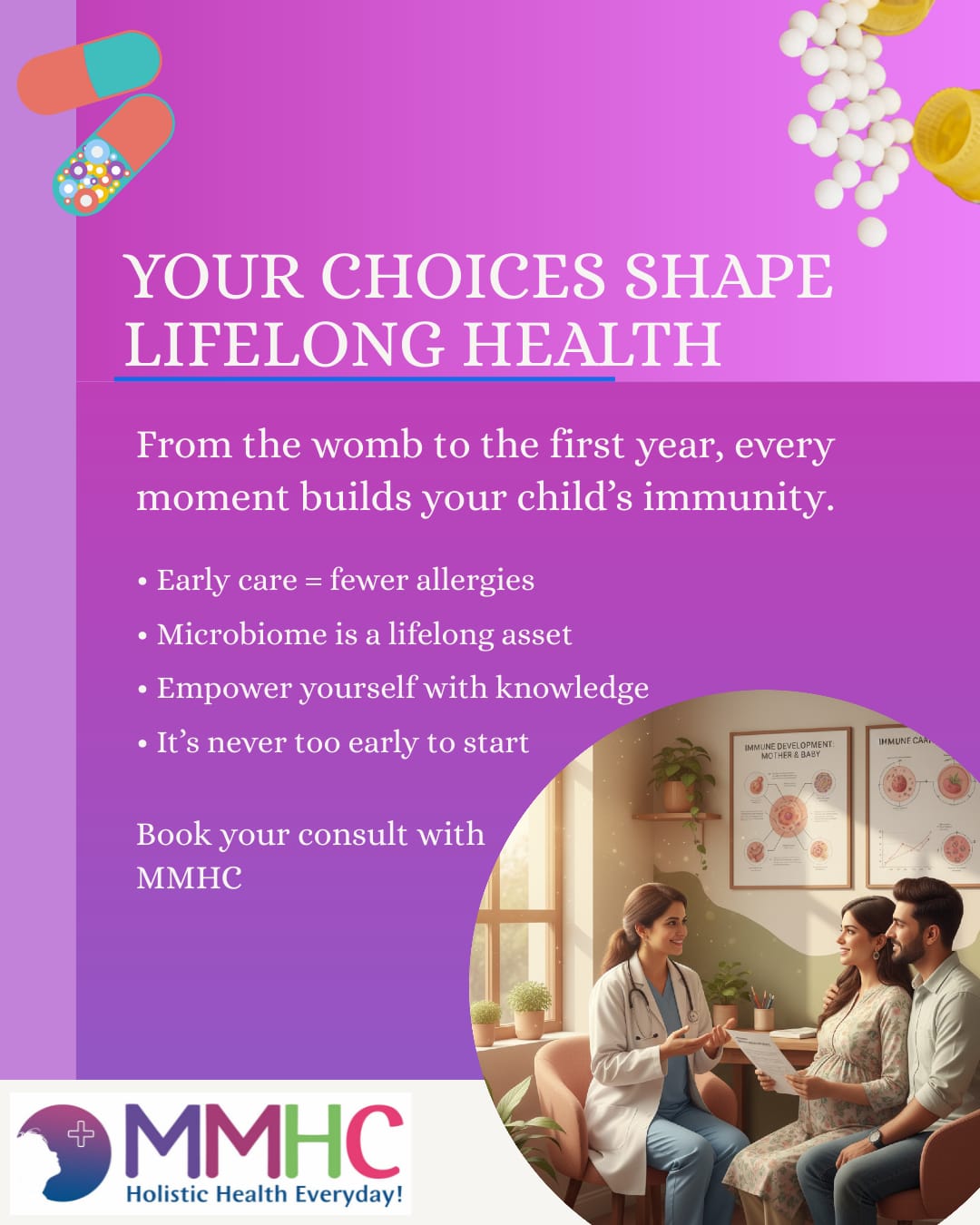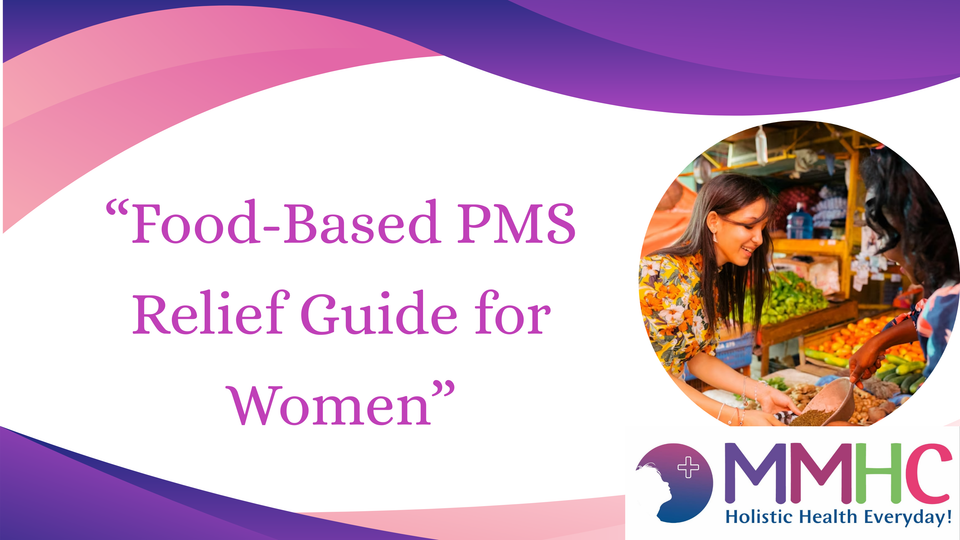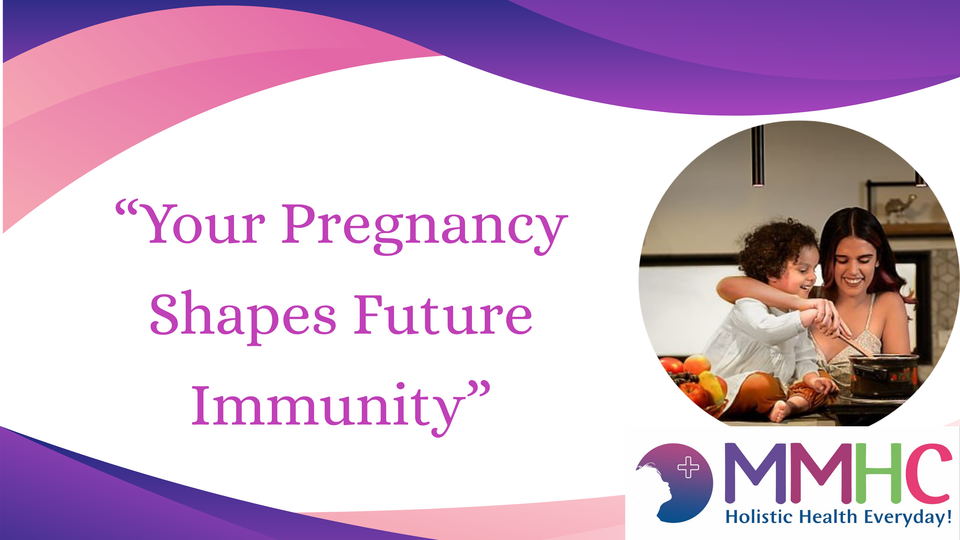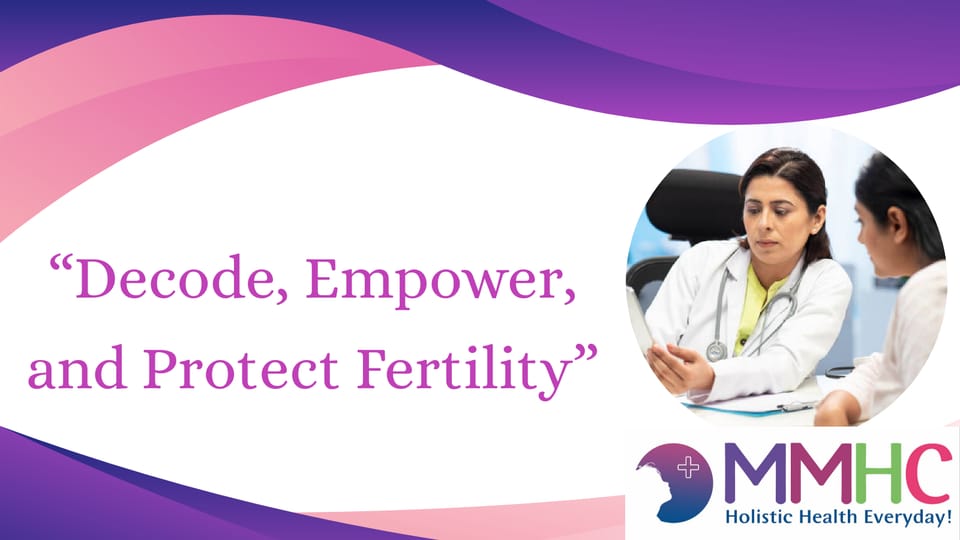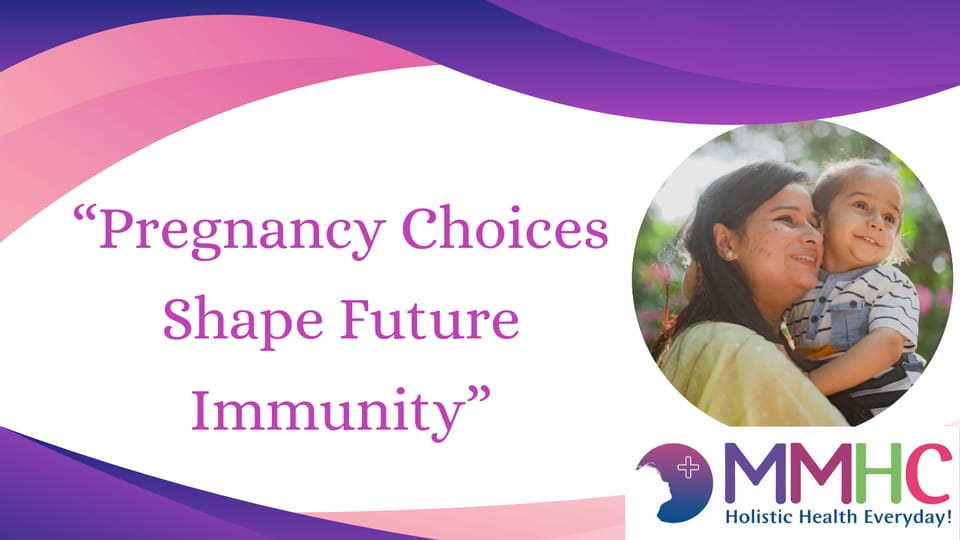How a Mother’s Environment During Pregnancy Shapes Her Child’s Immunity and Allergy Risk
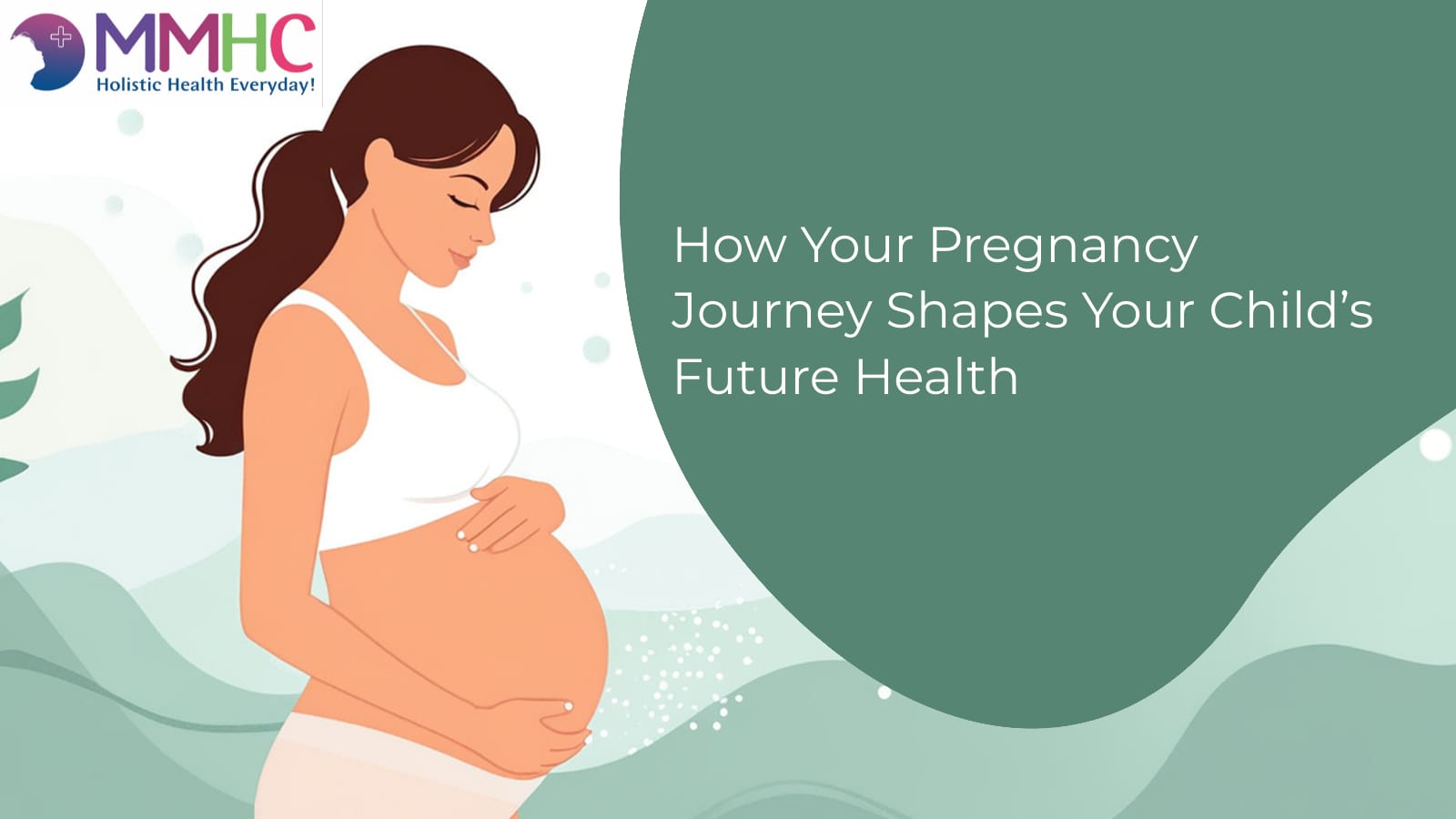

If you're a parent in a city like Mumbai, Bangalore, or Pune, you've likely noticed a worrying trend: more and more children seem to be developing allergies, asthma, and eczema. It can feel puzzling and frustrating. You might be asking, "Is it the pollution? The diet? Something in the air?" While these factors play a role, groundbreaking research is pointing to a critical, yet often overlooked, period that sets the stage for a child's immune health: the nine months of pregnancy. A compelling study published in the American Journal of Reproductive Immunology reveals that a mother's immune system and her exposure to microbes during pregnancy can "program" her baby's developing immune system, potentially reducing the risk of allergies later in life.
Beyond Genes: The Powerful Role of Prenatal Programming
We often think of our health as being determined by the genes we inherit. But science is now uncovering the immense power of epigenetics—a process where environmental factors can act like switches, turning genes on or off without changing the DNA itself. Think of your genes as the hardware of a computer, and epigenetics as the software that determines how that hardware functions.
During pregnancy, the fetus is incredibly receptive to signals from the mother. This is a survival mechanism, allowing the baby to adapt to the world it is about to enter. The research highlights that maternal microbial exposure during this time can induce epigenetic changes in the fetus, aiming to fine-tune the immune system for the anticipated postnatal environment. As the study states, these adaptations are meant to be beneficial but can also increase disease susceptibility if the prenatal environment doesn't match the postnatal one.
"Prenatal environmental exposures may alter gene expression via epigenetic mechanisms, aiming to induce physiological adaptations to the anticipated post-natal environment."

Key Findings: How Mother's Immunity Guides Baby's Defences
So, how does this immune programming actually work? The research outlines several key mechanisms:
- Balancing the T-Helper Cells: Our immune system relies on a balance between different types of T-helper cells. Th1 cells fight viruses and bacteria, while Th2 cells are involved in allergic responses. Newborns are naturally born with a Th2 skew to prevent rejection by the mother's body. Healthy microbial exposure during pregnancy helps shift this balance, promoting Th1 and regulatory T-cells (Tregs) that keep allergic Th2 responses in check. A failure in this balancing act may underlie the development of allergies.
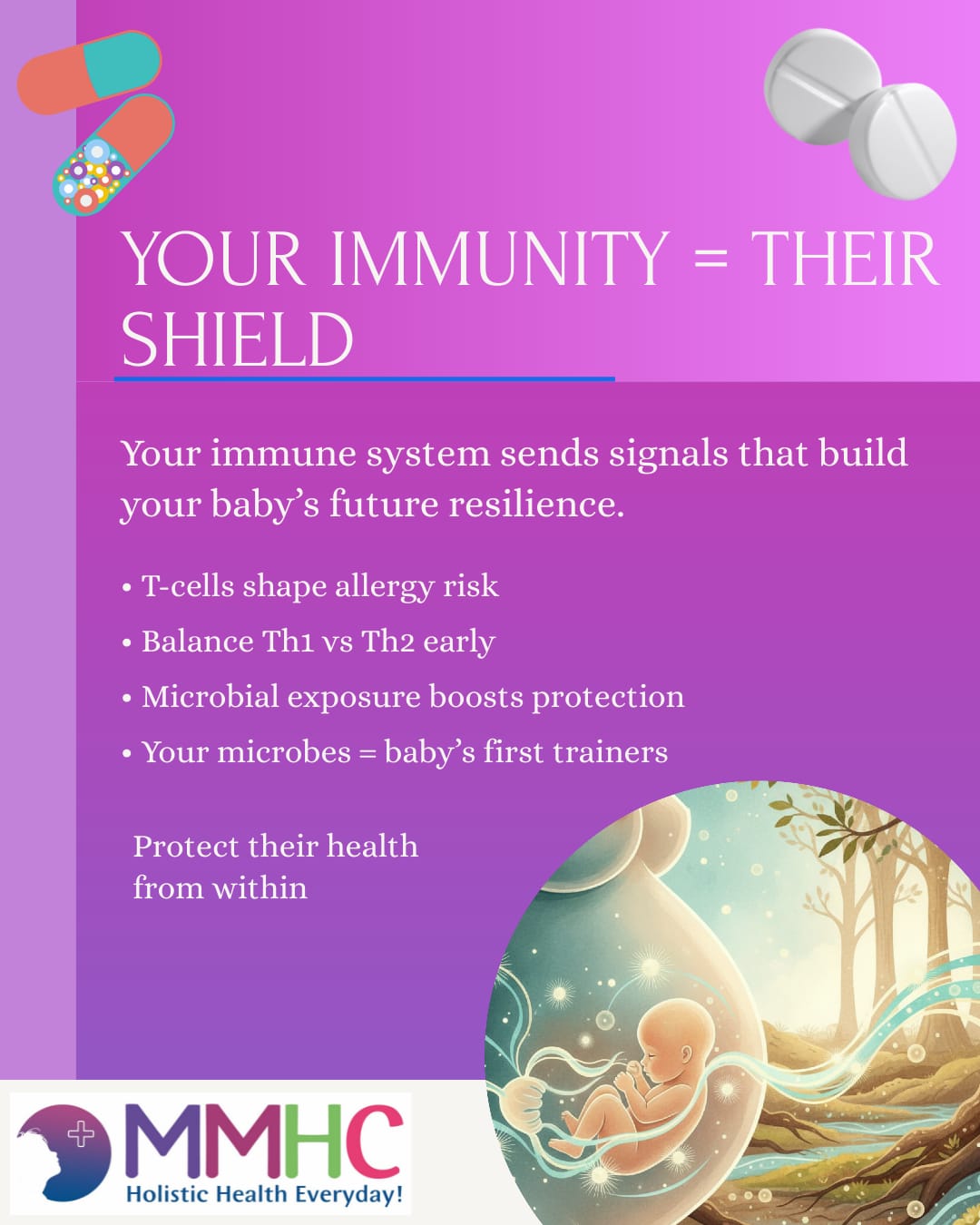
- The Gut Microbiota Connection: The gut is the largest immune organ in the body. The mother's gut microbiota, influenced by her diet and environment, plays a starring role. Studies cited in the paper show that children who develop allergies have a different gut microbiota composition early in life. The diversity of microbes is key, and this diversity is influenced by the mother. For instance, research shows that vaginal delivery exposes the newborn to the mother's beneficial vaginal and gut bacteria, providing a crucial first "seed" for the infant's own microbiome.
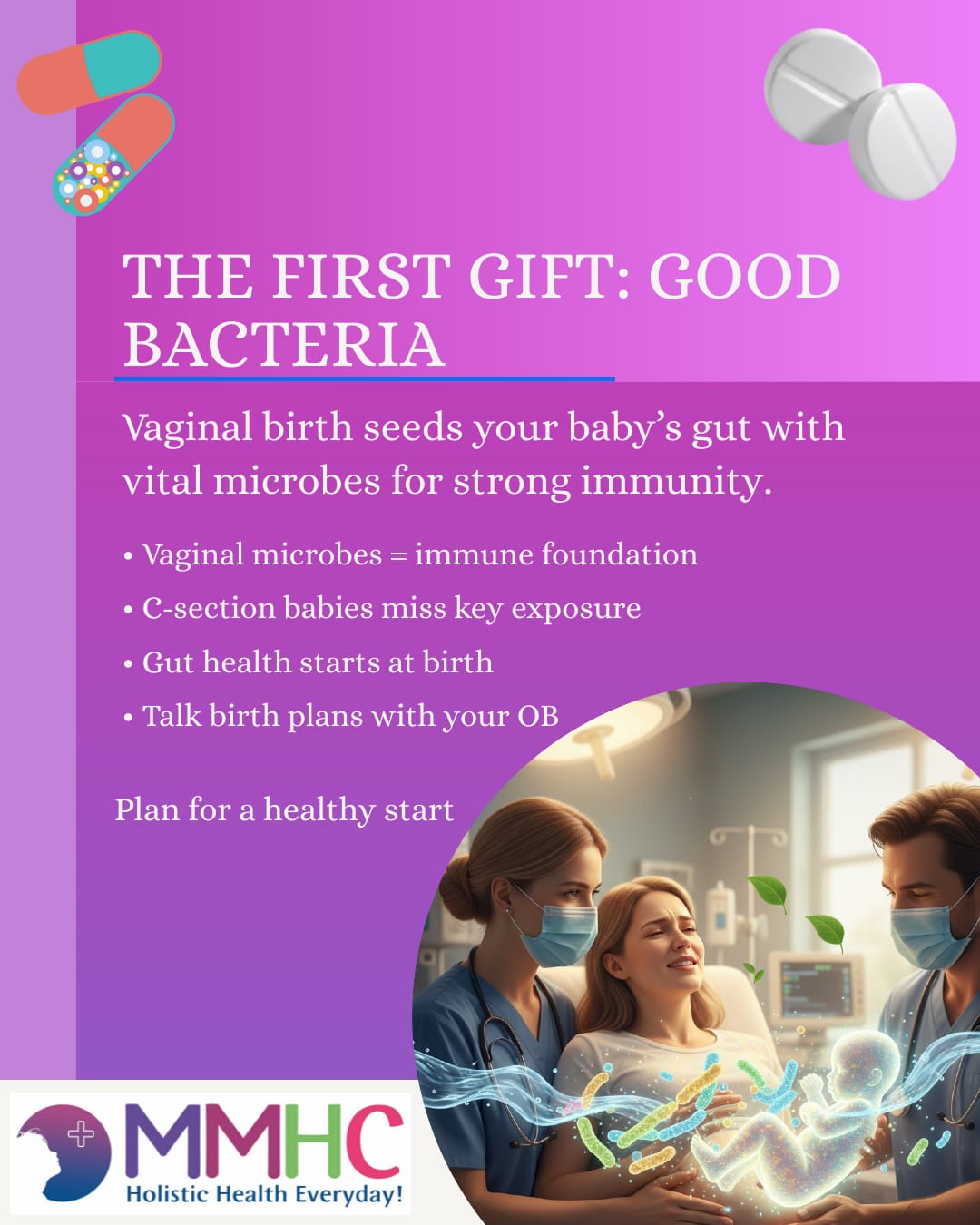
- Evidence from Farms and Probiotics: Epidemiological studies, such as those looking at children raised on farms, found that maternal exposure to a diverse farm environment during pregnancy was strongly associated with reduced allergy risk in children. This protection was linked to better-functioning Treg cells and higher IFN-γ production (a Th1 cytokine) at birth. Similarly, clinical trials where probiotics were given to mothers prenatally and to infants postnatally showed a significant reduction in the incidence of atopic eczema.

Prenatal Care is More Than Nutrition: It's Immune Training
This research powerfully expands our understanding of prenatal care. It’s not just about taking vitamins and eating well—though that is crucial. It’s also about consciously shaping the immune environment your baby is growing in. This holistic view aligns perfectly with modern approaches to prenatal wellness, which consider mental, physical, and environmental factors as interconnected.
At its core, this science tells us that a certain level of natural, microbial interaction during pregnancy is not something to fear, but rather an essential part of training the next generation’s immune system to be resilient and balanced.

Actionable Tips for Expectant and New Mothers in India
How can you apply these insights in the context of urban Indian life? Here are some practical, evidence-based steps:
- Embrace Natural Microbial Exposure: While we’re not suggesting a move to a farm, safe exposure to a diverse microbial environment is beneficial. Spend time in green spaces like parks and gardens. If possible, consider caring for a pet. Gardening is another excellent way to connect with beneficial soil microbes.
- Consider Probiotics (After Consulting Your Doctor): Incorporate probiotic-rich fermented foods like dahi (yogurt), kanji, idli, and dhokla into your diet. If you're considering probiotic supplements during pregnancy or for your infant, it is essential to discuss this with your healthcare provider to choose the right strain and dosage. The research suggests that starting earlier in pregnancy (e.g., second trimester) may be more effective.
- Support Your Gut Health with Prebiotics: Prebiotics are food for the good bacteria in your gut. Include plenty of fibrous vegetables, fruits, whole grains like jowar and bajra, and legumes in your meals.
- Advocate for Vaginal Delivery When Medically Possible: Understand the long-term immune benefits of vaginal birth and discuss your birth plan with your obstetrician. If a C-section is necessary, talk to your pediatrician about ways to support your baby’s microbiome.
- Breastfeed Your Baby: Breast milk is not just food; it's a powerful, live substance containing prebiotics (human milk oligosaccharides) and probiotics that directly colonize and nurture the infant's gut microbiome, further supporting healthy immune maturation.

Conclusion: Building a Foundation for Lifelong Health
The journey to preventing allergies and building strong immunity begins much earlier than we once thought. The prenatal period is a window of opportunity to positively influence your child's health for years to come. By understanding the powerful connection between maternal environment, epigenetics, and immune development, you can make informed choices that go beyond traditional prenatal care.
Are you an expectant or new parent looking to build the strongest possible foundation for your child's health? The science is clear: proactive, informed prenatal and pediatric care is one of the best investments you can make. If you have questions about your prenatal environment, diet, or your child's allergy risk, don't navigate this complex journey alone.
Schedule a consultation with the experts at MMHC today. Our team specializes in integrative and evidence-based approaches to prenatal and pediatric wellness. Together, we can create a personalized plan that supports your health and your child's lifelong well-being, turning scientific insight into actionable, nurturing care.
Contact MMHC to book your appointment and take the first step towards nurturing your child's immune health from the very start.
